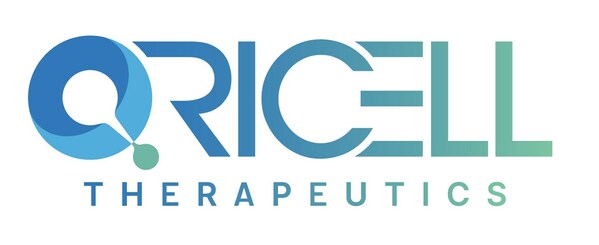 |
SHANGHAI and ROSELAND, N.J., June 5, 2024 /PRNewswire/ -- Oricell Therapeutics, a pioneering clinical-stage biopharmaceutical company, has presented the two-year long-term follow-up results of OriCAR-017, an open-label Phase I study evaluating GPRC5D-targeted CAR-T therapy in patients with relapsed/refractory multiple myeloma (RRMM), in an oral presentation at the 2024 American Society of Clinical Oncology (ASCO) Annual Meeting.
The updated data demonstrates that OriCAR-017 elicits deep and durable responses in RRMM patients as well as a favorable safety profile, including those refractory to anti-CD38 therapies, PIs, IMIDs, and those who have failed BCMA targeting CAR-T treatment. The long-term efficacy and safety follow-up results support OriCAR-017 as a promising therapeutic approach for RRMM. Currently, Oricell is smoothly advancing the clinical development of OriCAR-017 in both China (NCT06182696) and the United States (NCT06271252).
As of January 16, 2024, all ten patients responded well to OriCAR-017, with the last patient having completed a 24-month follow-up. The overall response rate (ORR) was 100.0%, with a stringent complete response rate (sCR) of 80.0% and a very good partial response rate (VGPR) of 20.0%. All patients achieved 100% minimal residual disease negativity (MRD) at day 28, which was further confirmed as 100% negative at the 3-months follow-up. The median duration of response (mDoR) was 10.43 months (95% CI, 5.00-17.00), the median progression-free survival (mPFS) was 11.37 months (95% CI, 5.93-18.00), and the median overall survival (mOS) had not yet been reached (7 patients were still under survival follow-up, 1 patient died due to disease progression, and 2 patients died from COVID-19). In the high-dose group, where 67% of patients were previously treated with BCMA CAR-T, the mDoR was 17.23 months (95% CI, 7.33-NR), and the mPFS was 19.10 months (95% CI, 8.30-NR). Currently, a BCMA CAR-T-treated patient is still in remission (>24 months).
The therapy was well-tolerated, with 9 out of 10 patients (90%) experiencing Grade 1 cytokine release syndrome (CRS) and only 1 patient (10%) experiencing Grade 2 CRS. No Grade 3 or higher CRS was observed. The median time to CRS onset was 2 days (range 1-9 days), with a median duration of 6 days (range 3-9 days). No immune effector cell-associated neurotoxicity syndrome (ICANS) or dose-limiting toxicities (DLTs) were observed. There were no serious adverse events (SAEs) or treatment-related deaths, cerebellar disorders, or delayed infections reported.
There were no pharmacokinetic differences between dose levels, with a Cmax of 7354.7 copies/μL and an AUC0-28 of 68587 copies•day/μg. At high doses, CAR-T cells were still detectable at 9 months, and after 21 months of follow-up, one patient had CAR-T cell expansion above the lower limit of quantitation (LLOQ). Patients with Tlast ≥ 9 months had a longer PFS compared to those with Tlast < 9 months.
No correlation was observed between antigen expression and therapeutic efficacy. Baseline data from all patients showed positive GPRC5D expression in bone marrow CD138+ plasma cells (MMPC), while 50% of relapsed patients showed downregulated expression detected by flow cytometry.
It's worth noting that the study included patients with complex and advanced disease characteristics. Among the ten R/R MM patients, 40% had extramedullary disease (EMD), 50% had undergone one or more BCMA-directed CAR-T treatments, 70% had high-risk cytogenetics, 70% were classified as ECOG 2 score status, and 80% were at International Staging System (ISS) stages II & III. OriCAR-017 demonstrates its potential as a safe and efficacious treatment option for RRMM patients, marking a substantial progress in the fight against multiple myeloma and offering hope to those facing demanding health conditions.
Details for the presentation as below:
Oral Presentation #7511
Title: OriCAR-017, a novel GPRC5D-targeting CAR-T, in patients with relapsed/refractory multiple myeloma: Long term follow-up results of phase 1 study (POLARIS).
Session Type:Rapid Oral Abstract Session
Session Title: Hematologic Malignancies—Plasma Cell Dyscrasia
Link: https://meetings.asco.org/abstracts-presentations/239043
About OriCAR-017
OriCAR-017, a chimeric antigen receptor (CAR) T cell therapy targeting GPRC5D, is a groundbreaking innovation in the treatment of relapsed/refractory multiple myeloma (RRMM). Leveraging Oricell Therapeutics' cutting-edge proprietary technology platforms, OriCAR-017 exhibits clearly differentiated binding avidity, persistence, anti-tumor efficacy and safety profile. OriCAR-017 received IND approval from FDA in Jan 2024 after its approval by NMPA in 2023. Impressive clinical results from the POLARIS study continue to be released.
Currently, Oricell has assembled a skilled team to operate in both the U.S. and China, collaboratively accelerating pipeline development globally.